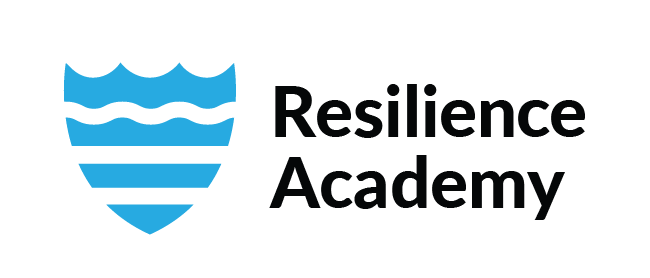[:en]Accurate and precise weather information is critical to preparing for extreme weather events, such as flooding. In Tanzania, the weather forecasts are primarily conducted by the Tanzanian Meteorological Agency (TMA) and are available through their website. But, the forecasts are at a regional level, the question is, how can we get an understanding of weather at a local level?
Building the weather station
As part of the Code for Resilience, supported by the Ramani Huria, the solution to this is being explored, using open source components such as Arduino and equipment that can be 3D printed. This has resulted in a weather station being deployed in Tandale Ward, Dar es Salaam, enabling up-to-date information about the weather situation in Tandale to be generated and made openly available.
In piloting this technology significant cost savings have been achieved. Traditional weather stations like the Davis Weather Meter (http://www.ambientweather.com/61dawivaprop3.html) cost around $1,200. In contrast our weather stations can be currently sourced for roughly $200. This cost will be dramatically reduced through 3D printing components locally with recycled plastic, this is very relevant to the Tanzanian innovation ecosystem currently, and offers opportunities for skills building for all. Learn more about this here: 3D Printing: The Rise of Home Manufacturing in Tanzania.
CfR Fellow Amos Nzaga and Emmanuel of Ramani Huria Testing the functionality of the weather station
The data that is generated by the weather station is machine readable and not that usable for everyone else, as such, a weather station dashboard has been prototyped, designed to make the information generated by the weather station accessible and open to all.
Weather Station Dashboard
This is just a first iteration of exploring how weather stations can be used and its data used to inform decisions for flood resilience. The ultimate goal is to use a network of weather stations to monitor the weather across Dar es Salaam and combine with the participatory and community mapping currently ongoing. From here we can investigate how a network of these stations could provide information to ward officers and community leaders on what actions to take during flood and extreme weather events, making Tanzania more resilient.
Installation in Tandale with Osiligi Lossai, Ward Executive Officer
The code used to run and display weather information is all openly licenced within our project repository on our Github here: https://github.com/codeforresilience/weatherDashboard and data generated by the weather is also licensed as open data. Please get in touch with us for any questions or on twitter at @ramanihuria, @nzaga_amos, @SamweliTwesa.
[:sw]Upatikanaji wa taarifa sahihi na bora za hali ya hewa ni muhimu kwa kujiandaa na matukio ya hali ya hewa kama mafuriko. Utabiri wa hali ya hewa ndani ya Tanzania unafanywa na mamlaka ya hali ya hewa Tanzania na unapatikana kupitia tovuti yao hapa. Lakini utabiri huu ni kwa kiwango cha kanda, swali ni tunaweza kupataje uelewa wa hali ya hewa kwa kiwango cha kata?
Kama sehemu ya mradi wa “Code for Resilience”, unaosaidiwa na Ramani Huria, suluhisho kwa hili suala linafanyiwa kazi, kwa kutumia vifaa huria kama Arduino na vifaa vinavyoweza kuchapishwa kwa kutumia plastiki. Hii imesababisha utengenezaji na ufungaji wa kifaa cha kupima hali ya hewa eneo la Tandale, Dar es salaam, na kuwezesha upatikanaji wa taarifa kuhusu hali ya hewa mapema zaidi na kisha kuzifanya kuwa taarifa huria.
Utumiaji wa teknolojia hii unapunguza gharama kwa kiasi kikubwa. Kwa kawaida kifaa cha upimaji hali ya hewa kwa mfano “Davis Weather Meter” (http://www.ambientweather.com/61dawivaprop3.html) kinagharimu karibu dola za kimarekani 1,200. Tofauti na hivi vifaa vinavyogharimu karibia na dola za kimarekani 200. Gharama inapunguzwa kwa kutengeneza sehemu za hiki kifaa kwa kuchapa plastiki, hii ni namna ambayo itaendana na mfumo wa ubunifu wa Tanzania kwa sasa, hii pia inatoa fursa ya kujenga huu ujuzi hapa Tanzania. Jifunze zaidi kuhusu hili hapa: 3D Printing: The Rise of Home Manufacturing in Tanzania.
Mshiriki wa kaza za CfR Amos Nzagana Emmanuel wa Ramani Huria wakijaribisha ufanyaji kazi wa kifaa cha upimaji hali ya hewa.
Takwimu zinazoletwa na hiki kifaa zinaweza kusomeka kiurahisi na tarakilishi peke na si kila mtu, hivyo dashibodi ya kuzionesha vizuri kwa kila mtu imetengenezwa, imeundwa kutoa na kuzifanya huria taarifa zote kutoka kwenye kifaa hichi cha hali ya hewa.
Dashibodi ya hali ya hewa
Hizi ni hatua za mwanzo kujua ni jinsi gani hivi vifaa vinaweza kutumia na taarifa zake kutumika katika kujipanga dhidi ya mafuriko. Lengo kuu ni kuwa na mtandao wa hivi vifaa kufuatilia hali ya hewa kote Dar es salaam na kisha kuchanganya na ukusanyaji shirikishi wa takwimu huria za ramani unaoendelea. Kutoka hapo tutaweza kuchunguza ni jinsi gani huu mtandao wa hivi vifaa unaweza kutoa taarifa kwa watendaji kata na viongozi wa jamii kuhusu ni mambo gani ya kufanaya wakati wa mafuriko na matukio makubwa ya hali ya hewa, hii itasiadia kuifanya Tanzania kujipanga zaidi.
Ufungaji wa kifaa cha hali ya hewa Tandale pamoja na Osiligi Lossai, Afisa mtendaji kata
Programu ilitumika kukusanya na kuonesha taarifa inapatikana wazi kupitia akaunti ya Github hapa: https://github.com/codeforresilience/weatherDashboard na takwimu ziko kwa leseni ya takwimu huria. Unaweza kutuuliza maswali yoyote na tunapatikana twitter kupitia @ramanihuria, @nzaga_amos, @SamweliTwesa
[:]
Related News





